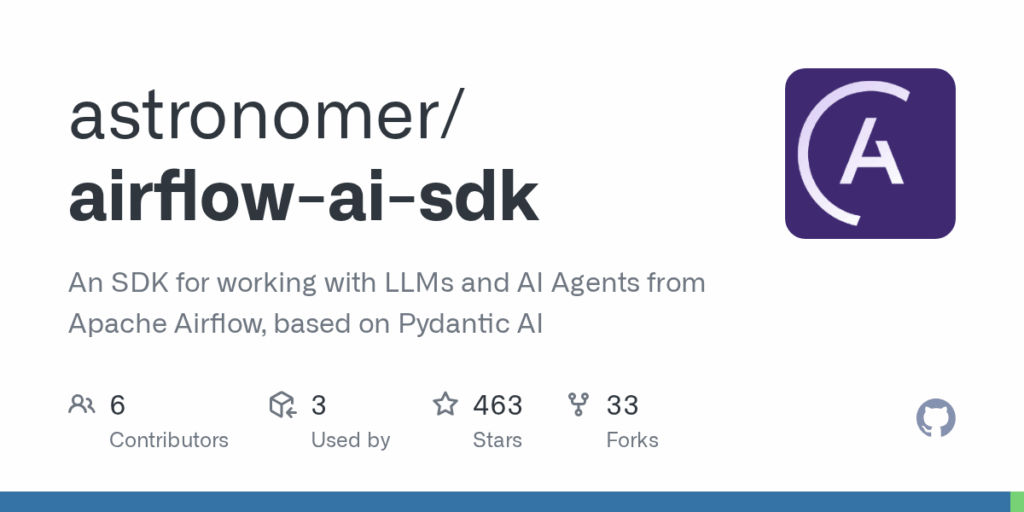airflow ai sdk
Basic Information
Airflow AI SDK is a Python software development kit designed to integrate large language models and agent-style AI calls into Apache Airflow pipelines. It provides decorator-based task primitives that let Airflow DAGs call LLMs, run multi-step agent logic, produce embeddings, and branch DAG control flow based on model outputs. The project aims to let teams use mature orchestration tooling to run LLM-driven workflows alongside traditional ETL, operational processes, and ML pipelines. The README documents a quick install option with optional dependencies, points to an examples repository containing a full local Airflow environment and sample pipelines, and links to a docs directory with getting started and usage guides. The code targets developers and platform engineers who want to embed model inference, reasoning agents, and output parsing into Airflow-managed workflows.








